The art of the weekend getaway isn't just about leaving town—it's about intentionally creating space for discovery, connection, and restoration in the small pockets of freedom we carve from our busy lives. After years of chasing sunsets from coast to coast, sleeping in roadside motels and boutique inns alike, and returning home with camera rolls full and spirits renewed, I've learned that the best weekend escapes aren't necessarily the farthest or most exotic. They're the ones that deliver maximum transformation with minimum stress.
What makes a great weekend getaway? A short drive (under 3 hours), 2–4 curated activities rather than exhausting itineraries, and accommodations memorable enough to photograph. How far should you travel for a weekend trip? Most successful mini vacations stay within a 150-200 mile radius, ensuring you spend more time experiencing and less time driving. What's the ideal length for a weekend getaway? Two to three days (Friday evening through Sunday) provides enough time to disconnect from routine without requiring extensive planning or time off work. How much should I budget for a weekend trip? Plan $200-400 per person for a comfortable experience including lodging, meals, and activities, though costs vary significantly by destination and travel style.
Whether you're plotting a spontaneous Friday departure or carefully orchestrating a long weekend months in advance, this comprehensive guide will help you craft weekend getaways that feel less like rushed tourism and more like genuine escapes—the kind you'll still be reminiscing about months later.
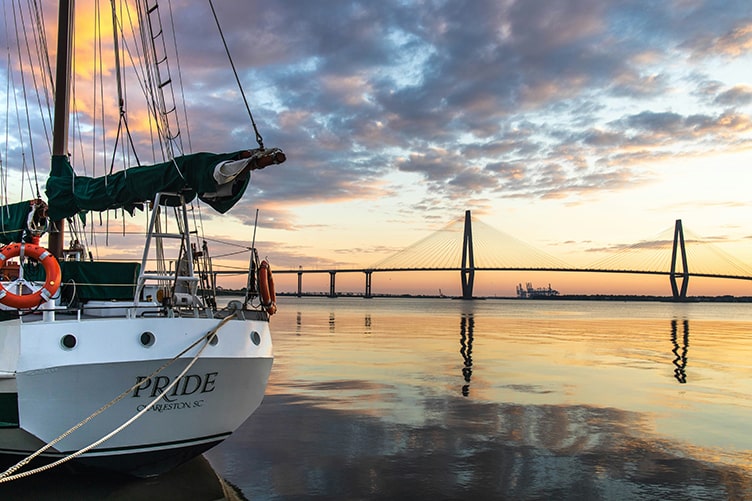 Charleston's historic district offers walkable weekend adventures with Southern charm
Charleston's historic district offers walkable weekend adventures with Southern charm
What Makes a Great Weekend Getaway?
A great weekend getaway balances accessibility, authentic experiences, and complete separation from daily life—all achievable within 48-72 hours through destinations under 3 hours away, 2-4 carefully chosen activities, and accommodations that feel special.
The magic formula combines three essential elements: proximity that prevents travel exhaustion, focus that allows deep rather than superficial experiences, and accommodations worth remembering. After orchestrating dozens of short trips across the country, I've noticed the most satisfying getaways share certain qualities: they're close enough that you arrive with energy intact, diverse enough to feel like departures from routine, and focused enough that you're not racing through impossible itineraries.
The best weekend destinations offer layered experiences. A coastal town isn't just beaches—it's also the oyster shack with the cracked vinyl booths, the lighthouse trail where you spotted harbor seals, and the bookshop where you found that collection of essays you've been meaning to read. Mountain getaways aren't just about hiking—they're about the scent of pine when you step outside your cabin, the crackle of a fire pit after dark, and the particular quality of silence that only exists far from highways.
What doesn't make a great weekend getaway? Anywhere requiring a full day of travel each way, destinations so packed with "must-sees" that you need a vacation from your vacation, or places that feel like obligations rather than discoveries.
Why the 3-Hour Travel Rule Matters for Short Trips
I've watched countless travelers violate what I call the "3-hour rule," and I've violated it myself enough times to know better. Here's the reality: if you're spending more than three hours getting somewhere (whether by car, train, or once you factor in airport time), you're eating into the precious 48-72 hours you actually have.
Travel industry research shows that "microcations"—short getaways lasting 3-4 days—have emerged as a major trend, making every hour of travel time a significant percentage of your total getaway. This doesn't mean you can never venture beyond that radius—it just means understanding the trade-off. A four or five-hour drive to somewhere extraordinary might be worth it for a long weekend, but for a standard Saturday-Sunday escape, staying within that three-hour bubble ensures you maximize actual destination time.
I've found my most rejuvenating weekend getaways happened within 90 minutes to two hours of home. Close enough to feel accessible, far enough to feel like an escape. That sweet spot where you arrive with energy still intact, ready to explore rather than collapse.
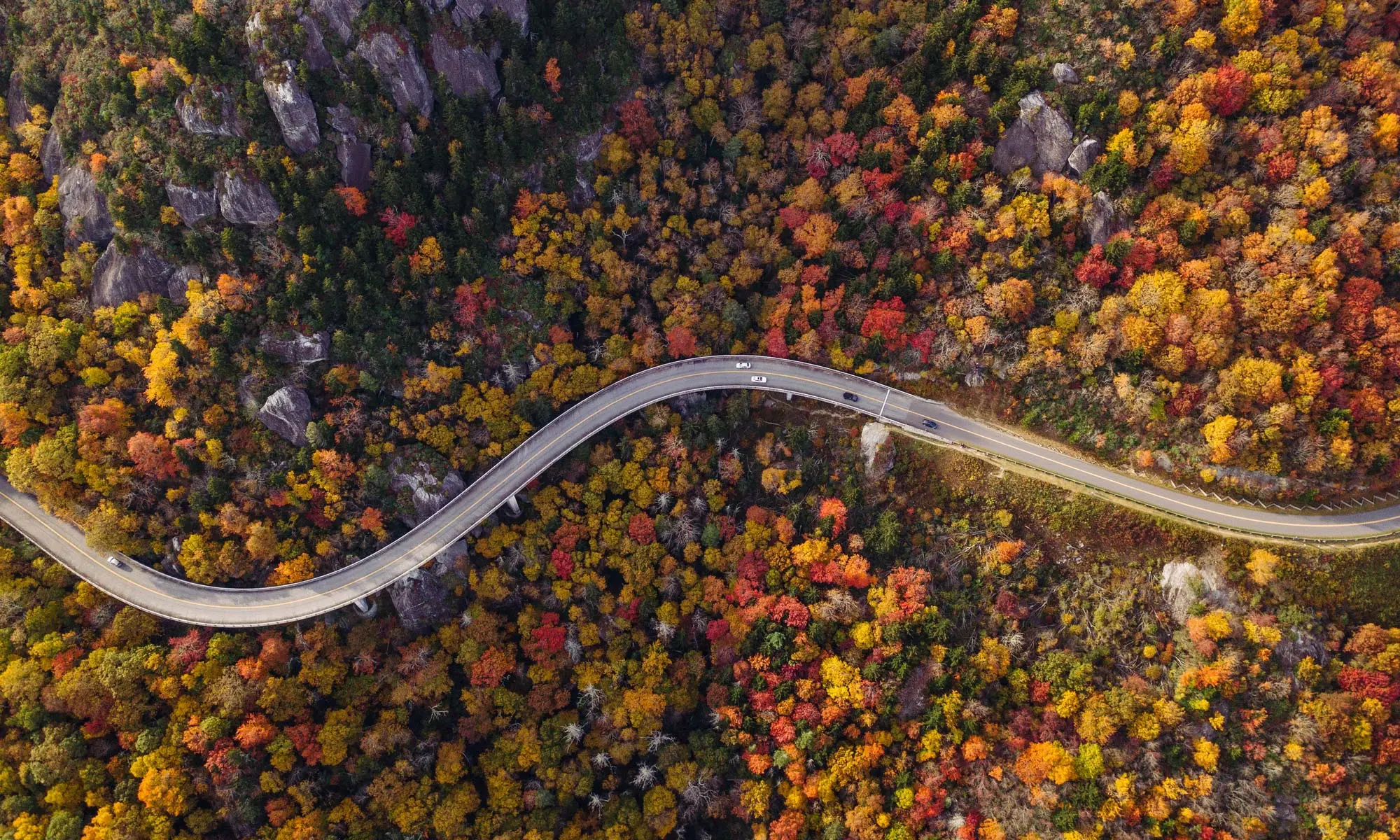 The Blue Ridge Parkway offers stunning weekend drives with changing elevations and vistas
The Blue Ridge Parkway offers stunning weekend drives with changing elevations and vistas
Ready to explore nearby destinations? Discover Philadelphia's walkable historic district or Charleston's Southern charm—both perfect examples of cities that deliver complete escapes within easy reach.
How Do I Choose the Right Weekend Destination?
Start by identifying what you need to recharge—adventure, relaxation, culture, or nature—then match that energy to destinations within your travel radius that deliver those specific experiences authentically.
The worst way to choose a weekend destination is by popularity alone. Just because everyone's posting sunset photos from that one town doesn't mean it's right for your particular brand of restoration. I've learned to ask myself three questions before committing to any best weekend trip:
What am I escaping from? If work has been crushing, maybe you need a destination with zero cell service and nothing but hiking trails. If you've been isolated, perhaps a vibrant small town with walkable streets and wine bars is the answer. The escape matters as much as the destination.
What am I escaping toward? Some weekends call for stimulation—food tours, live music, museums, breweries. Others demand simplicity—a cabin, a stack of books, morning trails, evening fires. Neither is better; they serve different purposes.
What's my logistics tolerance? Honestly assess how much planning and moving around you can handle. Some travelers thrive on jam-packed itineraries; others feel most restored parking themselves in one beautiful place and barely moving.
How to Match Your Mood to the Right Getaway Style
Over the years, I've categorized mini vacation ideas into distinct styles, each serving different needs:
The Reset Retreat: Minimal stimulation, maximum restoration. Think cabins in the woods, quiet coastal towns in the off-season, or spa-focused mountain lodges. Cape Cod's off-season charm or Newport's oceanfront serenity exemplify this perfectly—you're reading more than exploring, sleeping in without guilt, and measuring success by how much tension leaves your shoulders.
The Curiosity Quest: For weekends when your mind needs feeding. College towns with excellent museums, historic districts with layered stories, or regions with distinctive food cultures. Philadelphia's revolutionary history and Washington DC's world-class museums deliver this in spades. These trips fill notebooks and create reading lists.
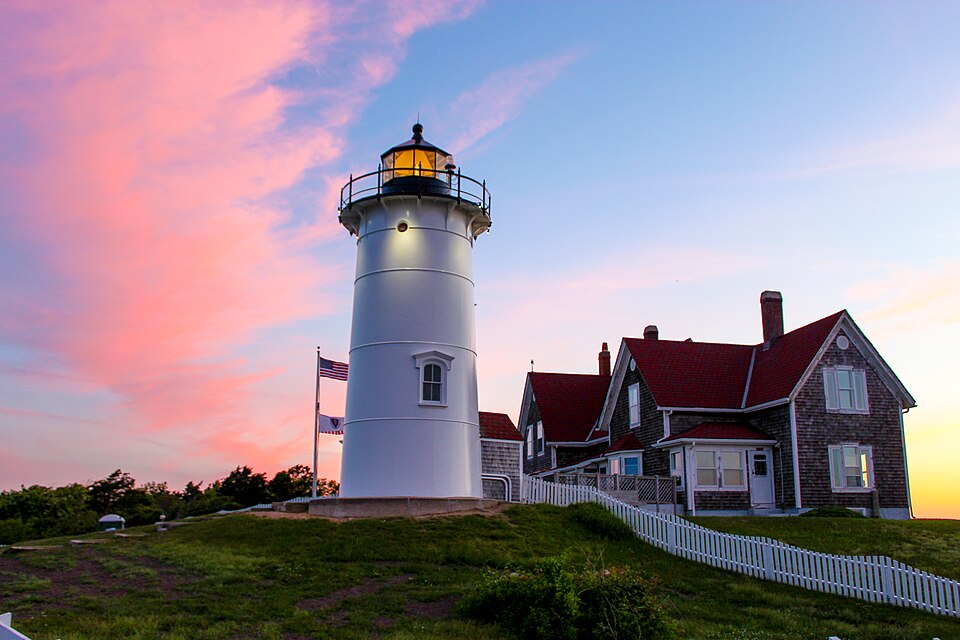 Cape Cod's iconic lighthouses and beaches offer peaceful coastal retreats
Cape Cod's iconic lighthouses and beaches offer peaceful coastal retreats
The Nature Immersion: When your soul needs green spaces and big skies. National parks, coastal hiking areas, mountain ranges, or lake regions. The accommodation almost doesn't matter—you're barely inside anyway. Short weekend visits to national parks have become increasingly popular, with many travelers discovering that 2-3 days provides ample time to experience these natural wonders without requiring extended time off work.
The Social Escape: Wine country weekends, festival destinations, or vibrant small cities. These getaways are about connection—whether strengthening relationships with travel companions or making new discoveries together in tasting rooms and dinner tables. Portland's brewery scene creates perfect opportunities for this kind of exploration.
The Urban Recharge: Sometimes the cure for routine is different routine. Weekend trips to walkable cities offer the pleasure of being anonymous, discovering new neighborhoods on foot, and experiencing the particular energy of somewhere unfamiliar. Charleston's cobblestone streets and historic architecture provide exactly this kind of urban escape.
I've found that mismatched expectations cause more weekend disappointment than bad weather or mediocre hotels. If you need quiet and choose chaos, or crave stimulation and choose isolation, no amount of beautiful scenery will satisfy.
Explore destination-specific guides: Whether you're seeking romantic coastal getaways in Newport or urban food adventures in Portland, matching destination to mood ensures satisfaction.
When Should I Plan My Weekend Getaway?
The optimal planning timeline depends on your goal: book 2-3 months ahead for popular destinations and specific accommodations, or embrace spontaneity by keeping a running list of options for last-minute escapes within 48 hours.
I keep what I call my "weekend escape list"—a running document of destinations, specific hotels, and seasonal experiences I want to chase. When I have a free weekend (or suddenly need one), I don't start from scratch. Some entries require advance booking, others work perfectly for spontaneous Friday afternoon decisions.
For sought-after destinations—wine country during harvest, beach towns in summer, mountain areas during fall colors—you want 6-8 weeks minimum for decent accommodation options. Those charming historic inns and boutique properties with character? They fill up fast, especially for weekends. I recommend checking availability on Booking.com or Hotels.com to compare options across multiple properties simultaneously.
But I've had equally magical experiences decided 48 hours before departure. Some of my favorite getaways emerged from Thursday evening conversations that began with "Should we just go somewhere this weekend?" The key is knowing which destinations work for spontaneous trips (places with multiple good lodging options) versus which require planning (anywhere with limited inventory).
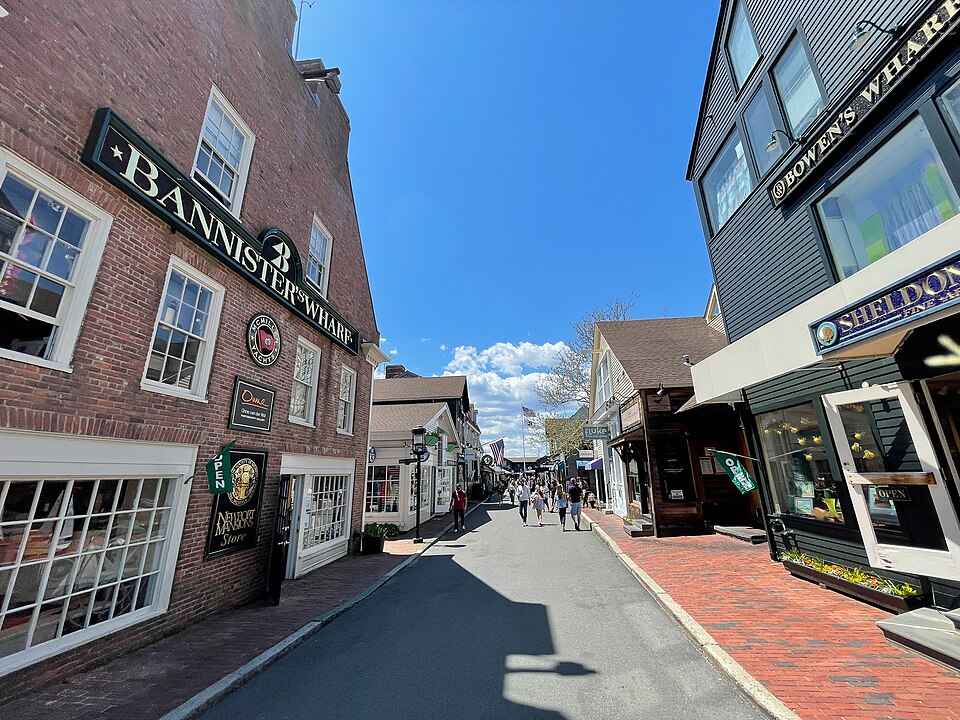 Newport's Gilded Age mansions and coastal walks create romantic weekend escapes
Newport's Gilded Age mansions and coastal walks create romantic weekend escapes
What Are the Best Weekend Getaways by Season?
Each season offers different advantages for short trips near me, and understanding these patterns helps you chase the right experiences at the right times.
Best Spring Weekend Getaways (March-May)
Spring weekend getaways deliver blooming landscapes, fewer crowds at popular destinations, and comfortable temperatures for outdoor exploration—making them ideal for budget-conscious travelers seeking off-peak pricing.
I target desert regions in early spring before heat arrives, and mountain destinations as snow melts but before peak summer crowds descend. Spring also delivers deals—you're past winter low season but before summer high season, often finding accommodations 20-30% below peak rates.
Top spring activities: Cherry blossom viewing, wildflower hikes, wine country before crowds, coastal towns awakening from winter quiet, early season camping with solitude. Washington DC's cherry blossoms create one of America's most iconic spring experiences, typically peaking late March through early April.
Spring packing essentials: Layers for temperature swings, light rain jacket, comfortable walking shoes for muddy trails, allergy medication if you're sensitive to pollen.
Best Summer Weekend Getaways (June-August)
Summer weekend getaways mean longer daylight hours (up to 15+ hours in northern regions), warm weather activities, and peak travel season pricing—best for maximizing outdoor adventure time but requiring earlier booking.
Longer days matter tremendously when you only have 48-72 hours. You can start a hike at 7 AM and still make dinner reservations at 8 PM. Coastal destinations peak during these months, but I've found excellent experiences by targeting slightly lesser-known beach towns or going inland to mountain regions where crowds thin out.
Top summer activities: Beach time, water sports, festival circuits, outdoor concerts, sunset boat tours, mountain hiking, camping. Cape Cod's beaches shine brightest during summer months with warm water and quintessential New England coastal vibes.
Summer packing essentials: Sunscreen (dermatologists recommend SPF 30+), swimwear, light breathable clothing, insect repellent, refillable water bottle, sun hat.
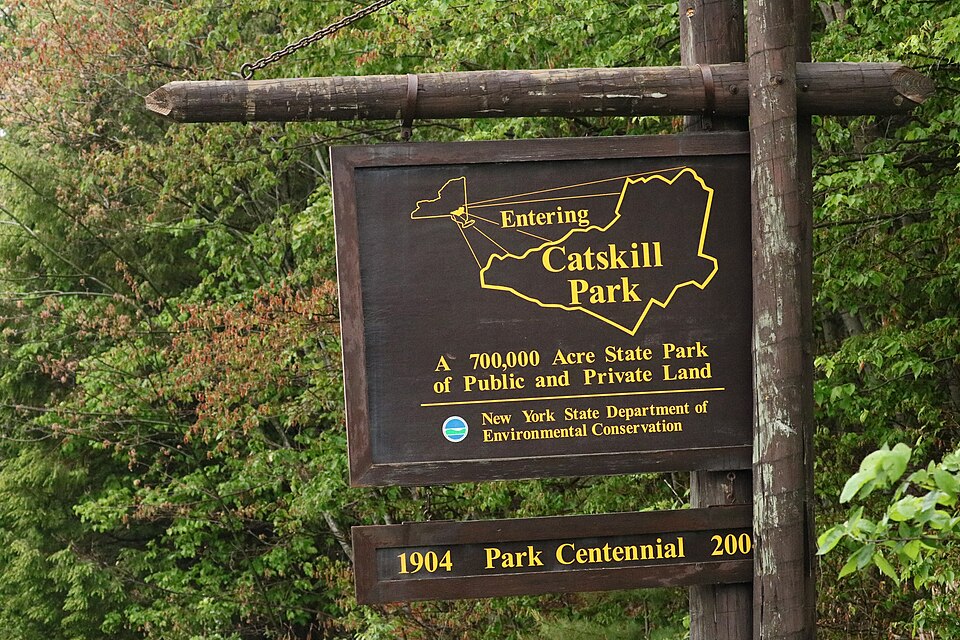 The Catskills offer spectacular fall foliage and hiking for autumn weekend escapes
The Catskills offer spectacular fall foliage and hiking for autumn weekend escapes
Best Fall Weekend Getaways (September-November)
Fall weekend getaways represent peak season for good reason—comfortable temperatures (60-70°F in most regions), harvest festivals, spectacular foliage, and ideal lighting for photography—but require 6-8 weeks advance booking.
I build entire road trip weekends around single experiences: apple orchards, wine harvests, forest hikes at peak color. Fall color timing varies by latitude and elevation—northern regions and higher elevations peak earlier (late September-early October) while southern areas often hold color through mid-November.
Top fall activities: Leaf peeping drives, apple picking, Oktoberfest celebrations, harvest wine tastings, pumpkin patches, comfortable hiking temperatures, cozy cabin stays. Newport's Cliff Walk becomes even more dramatic against autumn ocean backdrops.
Fall packing essentials: Layering pieces for temperature variation, comfortable shoes for hiking, camera for peak color, light jacket for evening chill, warm socks for cabin stays.
Best Winter Weekend Getaways (December-February)
Winter weekend getaways divide into two strategies: embrace the cold (ski towns, mountain cabins, holiday markets) or chase warmth (desert regions, southern destinations)—with winter offering the best deals and thinnest crowds at normally-packed destinations.
I've found winter delivers exceptional value—30-50% lower rates at beach destinations during off-season, empty hiking trails at usually-crowded parks, and intimate experiences at attractions without summer hordes. Plus there's something magical about cozy accommodations when weather turns harsh.
Top winter activities: Skiing and snowboarding, cozy cabin retreats, holiday markets, desert hiking in perfect weather, southern coastal escapes, spa weekends, museum exploration. Philadelphia's holiday traditions and historic sites take on special charm during winter months.
Winter packing essentials: According to CDC travel recommendations, winter travel requires layered clothing systems, waterproof outer layers, insulated footwear, hand warmers, moisturizer for dry air, and any prescription medications in original containers.
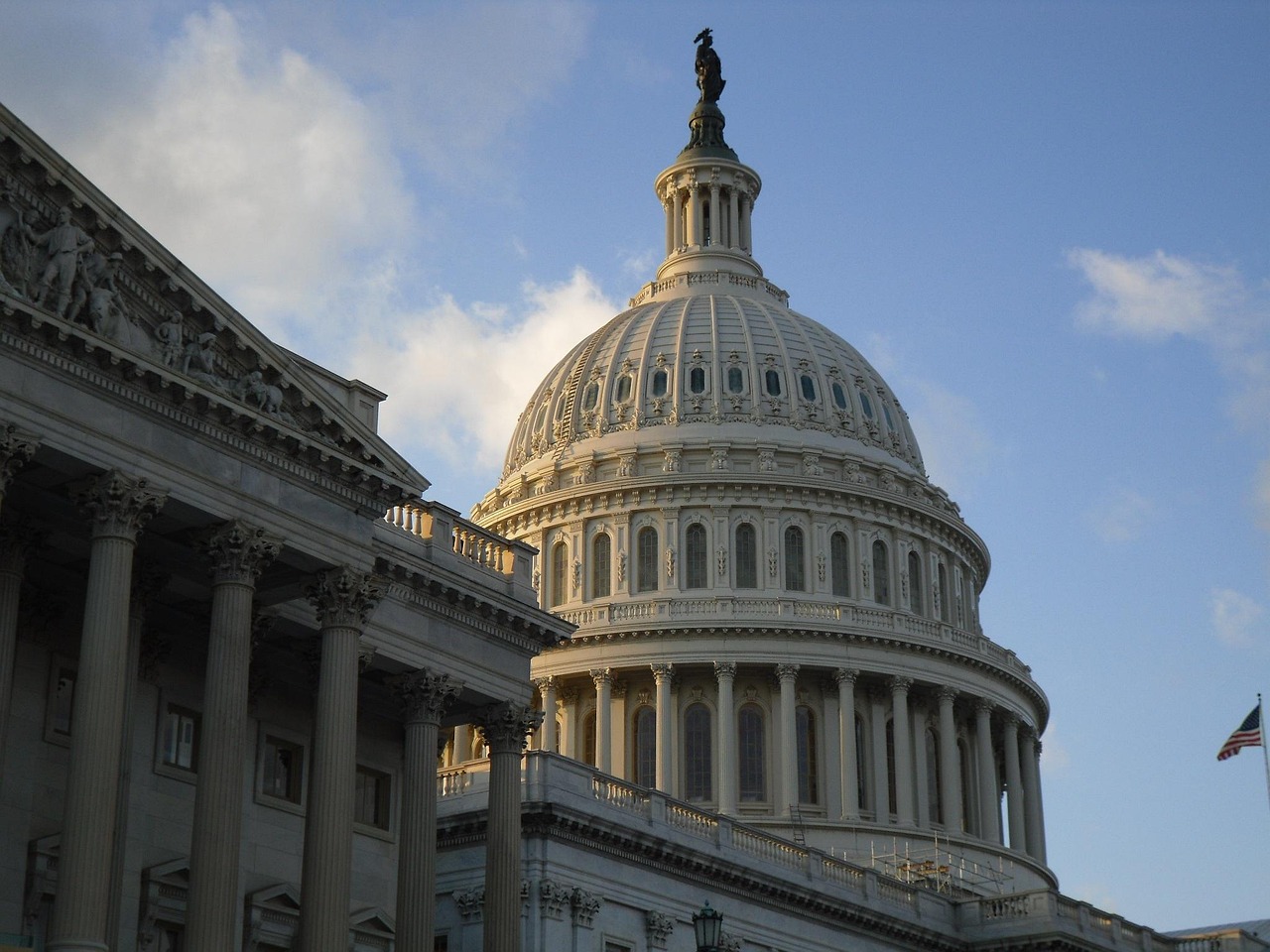 Washington DC's free museums and monuments offer enriching cultural weekend experiences
Washington DC's free museums and monuments offer enriching cultural weekend experiences
Plan seasonally: Each season offers unique opportunities—explore our destination guides for spring cherry blossoms in DC, summer beaches on Cape Cod, or fall foliage in Newport.
What Should I Pack for a Weekend Getaway?
Pack for versatility and comfort: 2-3 layerable outfits, comfortable walking shoes, weather-appropriate outer layer, toiletries, and specialized gear for planned activities—all fitting in a single carry-on or backpack (typically 40-50 liters).
I learned the hard way that overpacking for weekends creates more stress than it solves. You're not leaving for a month; you're gone 48-72 hours. The goal is packing light enough that you're not lugging heavy bags but prepared enough that you're not caught without essentials.
My standard weekend packing list has evolved into a system I can execute in 20 minutes:
Clothing: Two pairs of pants (one versatile enough for nicer restaurants), three tops that layer and mix, one lightweight jacket, comfortable walking shoes, weather-specific outerwear, one nicer outfit if plans include upscale dining. I follow the "wear one, pack two" rule for bottoms and "wear one, pack three" for tops.
Toiletries: Travel-size versions of everything (TSA requires 3.4 ounces/100ml or less for carry-ons), medications in original prescription bottles as recommended by the CDC, sunscreen, and any specialty items you won't find easily. I keep a permanent "weekend bag" of toiletries already packed so I'm not raiding my bathroom every Friday.
Tech: Phone, charger, portable battery, camera if you're serious about photos, headphones for travel. That's it. Laptops stay home unless work absolutely requires them.
Activity-Specific Gear: Hiking boots if trails are planned, swimsuit if water's involved, nice shoes if upscale dining is on the agenda. Don't pack for every possible scenario—pack for your actual plans.
The biggest packing mistake I see? Bringing seven outfit options for a two-night trip. The second biggest? Forgetting critical items like phone chargers or medications because packing happened in a rushed panic.
Consider a quality weekender bag or packable backpack that compresses to fit airplane overhead bins while expanding for road trips. Many options are available at various price points from budget-friendly to premium.
The Complete Weekend Getaway Packing Checklist
I've refined this checklist over years of short trips, organized by category for systematic packing:
Essential Weekend Getaway Packing List
| Category |
Items |
Priority |
| Essentials |
ID, payment cards, phone & charger, medications, sunglasses |
Critical |
| Clothing |
2 bottoms, 3-4 tops, underwear/socks, sleepwear, outerwear |
Critical |
| Footwear |
Walking shoes (broken in), activity-specific shoes, one nice pair |
Critical |
| Toiletries |
Toothbrush/paste, deodorant, face wash, hair products, prescriptions |
Critical |
| Tech |
Portable battery, camera (optional), headphones, charging cables |
High |
| Health & Safety |
First-aid kit, sunscreen (SPF 30+), insect repellent, hand sanitizer |
High |
| Convenience |
Reusable water bottle, snacks, book/e-reader, small notebook |
Medium |
| Activity Gear |
Beach: swimsuit, towel, flip-flops | Hiking: boots, daypack, poles |
As needed |
Essentials (Never Leave Home Without):
Clothing (2-3 Day Rule):
- 2 bottoms: wear one, pack one (jeans/pants versatile enough for multiple settings)
- 3-4 tops that layer and coordinate
- Underwear and socks for each day plus one extra set
- Sleepwear
- Weather-appropriate outerwear (check destination forecast)
- Comfortable walking shoes (broken in, not new)
- One nice outfit if itinerary includes upscale dining
Toiletries (Travel-Size Container System):
- Toothbrush and toothpaste
- Deodorant
- Face wash and moisturizer
- Shampoo and conditioner (or use hotel amenities)
- Hair styling products if needed
- Makeup essentials (not full collection)
- Prescription medications
- Contact lenses and solution if applicable
- Small microfiber towel (useful for beach/hiking trips)
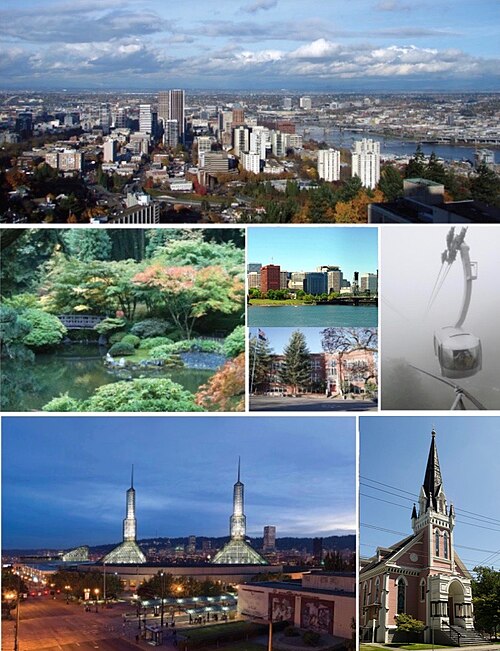 Portland's food trucks and brewery culture create vibrant urban weekend experiences
Portland's food trucks and brewery culture create vibrant urban weekend experiences
Nice to Have (Space Permitting):
- Book or e-reader for downtime
- Small notebook and pen (I capture ideas and experiences)
- Travel-size laundry detergent for emergency washing
- Snacks for travel and between meals
- Reusable shopping bag for souvenirs or groceries
- Collapsible daypack for hikes or beach days
Activity-Specific Additions:
- Beach: swimsuit, beach towel, flip-flops, waterproof phone case
- Hiking: trail boots, moisture-wicking layers, hat, trekking poles
- City exploration: comfortable walking shoes (you'll log 15,000+ steps daily), small crossbody bag
- Cold weather: insulated jacket, gloves, warm hat, thermal base layers
- Romantic getaway: one dressy outfit, nice shoes, small bag of toiletries
I use packing cubes to compress everything into a single backpack or small duffel. If it doesn't fit, I don't need it. Rolling clothes instead of folding saves space and reduces wrinkles.
Pro tip from frequent travelers: Pack outfits as complete sets (top, bottom, undergarments) in individual packing cubes. When you arrive, grab one cube—you're dressed for the day without rummaging through your entire bag.
How Can I Maximize a Short Weekend Trip?
Maximize your weekend by arriving Friday evening rather than Saturday morning (gaining 12-18 extra hours), choosing accommodations within walking distance of activities, limiting yourself to 2-3 key experiences per day, and building in actual relaxation time—overcoming the urge to overschedule.
The paradox of weekend getaways: you have limited time, but trying to do too much guarantees you'll enjoy nothing. I've watched travelers turn 48-hour escapes into exhausting death marches through too many attractions, returning home more depleted than when they left.
Here's what actually works: Choose a destination with 4-6 things you genuinely want to do, then plan to accomplish 3-4 of them. Leave space for spontaneity, wrong turns that lead to great discoveries, and the kind of unhurried meal that becomes a highlight.
Why Friday Departure Gives You the Advantage
If possible, leave Friday afternoon or evening rather than Saturday morning. Those extra 12-18 hours make an enormous difference. Even if you arrive at 8 PM, you've already transitioned from work mode to escape mode. Wake up Saturday already in your destination, ready to dive in rather than spend half the day traveling.
I've found the 3 PM Friday departure sweet spot—early enough to miss peak rush hour in most cities, late enough that you've put in a solid workday, timed perfectly to arrive for dinner in your destination. If your workplace offers flexible schedules, this timing transforms weekend trips from rushed sprints into genuine escapes.
For weekend getaways within 2-3 hours, Thursday night departures can work beautifully if you have flexibility. Suddenly you've got a full 72 hours instead of a compressed 48. Consider renting a car through Booking.com car rentals if you need a larger vehicle for your trip.
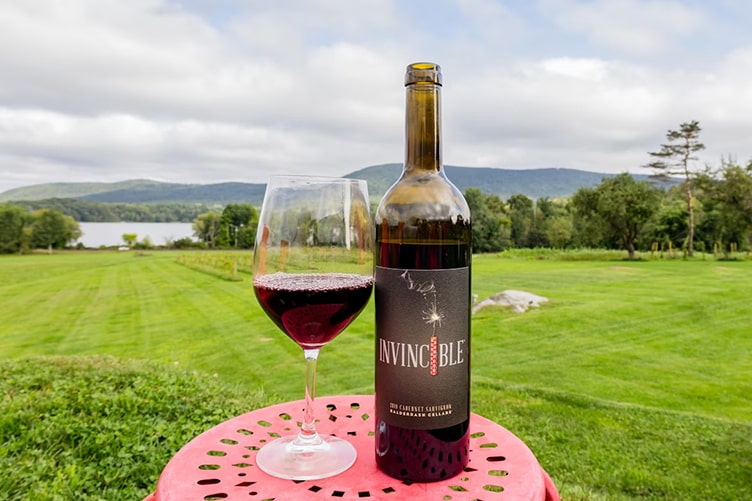 The Berkshires provide peaceful mountain retreats with stunning seasonal beauty
The Berkshires provide peaceful mountain retreats with stunning seasonal beauty
How to Create a Flexible Itinerary That Works
The best weekend itineraries are structured but not rigid. I use what I call the "anchor and float" method—a framework that prevents both chaos and over-scheduling:
Anchors (1-2 per day): Time-specific commitments that create structure—a restaurant reservation, a sunset hike with specific golden hour timing, a tasting room appointment, a museum with timed entry. These anchor your day but don't dominate it.
Floats (2-3 per day): Loose activities that can happen anytime—browsing shops, visiting a museum without timed entry, driving a scenic route, stopping at a farm stand, exploring a neighborhood on foot. These fill gaps without creating stress.
White space (2-3 hours daily): Actual nothing time. Coffee on the porch. Reading by the pool. Extended dinners with no place to be after. Spontaneous naps. This isn't wasted time; this is often when the magic happens—conversations deepen, you actually relax, and you notice beautiful moments you'd otherwise miss.
I plan the 20% that requires advance planning (accommodations, key reservations requiring deposits) and leave 80% flexible. My best weekend memories rarely come from checked boxes on itineraries—they come from unexpected conversations with locals, spontaneous detours down interesting roads, and having enough mental space to notice beautiful moments.
Sample Saturday Itinerary Using Anchor & Float Method
| Time |
Activity Type |
Description |
| 9:00 AM |
Anchor |
Breakfast reservation at popular local spot |
| 10:30 AM - 1:00 PM |
Float |
Explore downtown on foot, browse shops, visit historical site |
| 1:00 PM - 3:00 PM |
White Space |
Leisurely lunch, read in park, rest at accommodation |
| 3:00 PM - 5:00 PM |
Float |
Scenic drive to nearby viewpoint, stop at farm stand |
| 6:00 PM |
Anchor |
Dinner reservation at recommended restaurant |
| 8:00 PM onward |
White Space |
Evening walk, drinks, early sleep if tired |
This framework ensures you experience highlights without exhaustion, maintains flexibility for weather or energy changes, and creates space for restoration—the actual point of weekend getaways.
Maximize your specific destination: Get detailed itineraries for Philadelphia's historic district, Cape Cod's beaches, or Charleston's food scene.
What Are the Most Common Weekend Getaway Mistakes?
The most damaging mistakes include overscheduling activities (trying to see 8+ things in 48 hours), choosing destinations too far away (over 3-4 hours travel time), skipping meal reservations at popular restaurants, and not building in actual relaxation time—all preventable with better planning.
After observing countless weekend trips (and making these mistakes myself), certain patterns emerge. The good news? They're all fixable with awareness and intentional planning.
Mistake #1: The Overstuffed Itinerary Problem
The issue: Trying to see everything in 48 hours guarantees you'll experience nothing deeply. Racing from attraction to attraction creates stress, not restoration.
The solution: I've learned that two or three memorable experiences beat eight rushed ones every time. Quality over quantity isn't just a cliché—it's the difference between returning refreshed and returning exhausted. Choose your top 3-4 must-dos, then leave space for spontaneity.
Real example: Instead of "visit 6 museums, 4 restaurants, 3 historic sites, and 2 neighborhoods" in a weekend, try "explore one museum deeply, have one exceptional dinner, walk one neighborhood thoroughly, leave afternoons unplanned." You'll actually remember the weekend.
Mistake #2: Underestimating Travel Time Reality
The issue: Whether it's airport security, traffic, or those "shortcut" roads that aren't actually faster, travel always takes longer than GPS estimates suggest.
The solution: Build in buffer time. If GPS says 2 hours, plan for 2.5 hours. If you arrive early, that's reading time in a coffee shop, not wasted time. Account for bathroom breaks, food stops, traffic, and the reality that scenic routes invite spontaneous photo stops.
Real example: A "3-hour drive" realistically becomes 4+ hours when you factor in morning coffee stop, lunch, bathroom break, and that roadside attraction that looks interesting. Don't schedule tight arrival times for reservations on travel days.
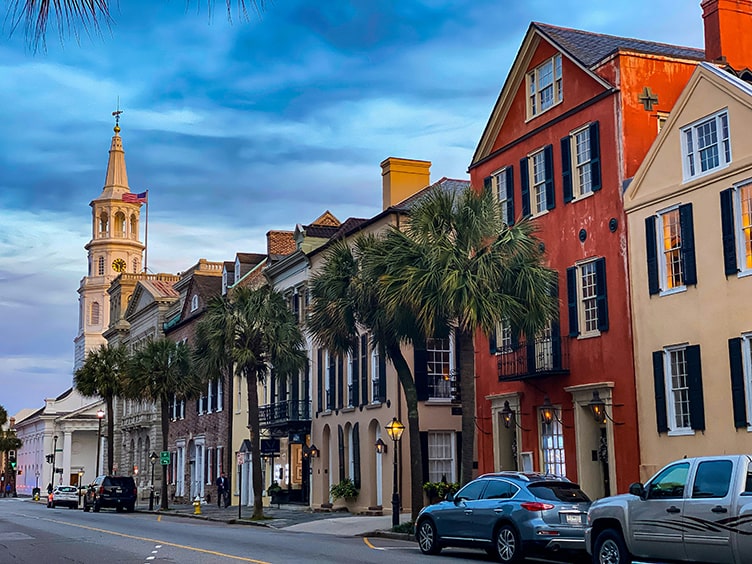 Charleston's waterfront dining and historic charm create memorable urban weekend escapes
Charleston's waterfront dining and historic charm create memorable urban weekend escapes
Mistake #3: Accommodation Location Fails
The issue: That cheaper hotel outside town might save money nightly, but it costs you hours of time and eliminates spontaneity. Every activity requires a lengthy round-trip drive.
The solution: I've learned to prioritize location over amenities for best 2-day trips. I'd rather pay more to be walkable to everything than save money but require a car for every single movement. When exploring Philadelphia's historic district or Charleston's cobblestone streets, staying central transforms the experience—you can duck back to your room between activities, explore neighborhoods on foot, and never worry about parking.
Real example: Paying more for a centrally-located inn versus a suburban hotel saves you significant driving time over a weekend, plus parking fees in cities, plus the mental energy of constant car logistics. The price difference is often worth it for the convenience gained.
Browse centrally-located accommodations on Booking.com or Hotels.com with filters for "city center" or "walkable location."
Mistake #4: No Restaurant Research or Reservations
The issue: Nothing kills weekend momentum like spending 45 minutes driving around trying to find dinner, only to discover the good places are full or have 90-minute waits.
The solution: I do 30 minutes of research before arriving—identify 2-3 restaurants for each meal, note if reservations are needed (and make them), save backup options. This creates flexibility without chaos. Cities like Philadelphia with its legendary food scene or Portland's food truck ecosystem demand this kind of planning—the best spots fill up fast, and wandering aimlessly means settling for mediocre meals.
Real example: Making a Saturday dinner reservation on Tuesday ensures you eat at the acclaimed farm-to-table restaurant everyone recommends. Arriving without reservations means eating at the chain restaurant by the highway because everything else is booked.
Mistake #5: Forgetting It's a Weekend, Not a Sprint
The issue: Treating your getaway like a race to see everything, then feeling exhausted and disappointed because you didn't relax.
The solution: The point isn't bragging rights about how much you saw—it's returning home genuinely restored. Some of my most rejuvenating weekends included sleeping until 9 AM, lingering over coffee for two hours, and having nothing planned until 2 PM. That's not wasting the weekend; that's using it correctly.
Real example: Schedule "nothing" as an actual activity. "10 AM - noon: coffee on the porch, reading, conversation" is as valuable as "10 AM - noon: guided historical tour." Both restore you; one costs nothing and might be more memorable.
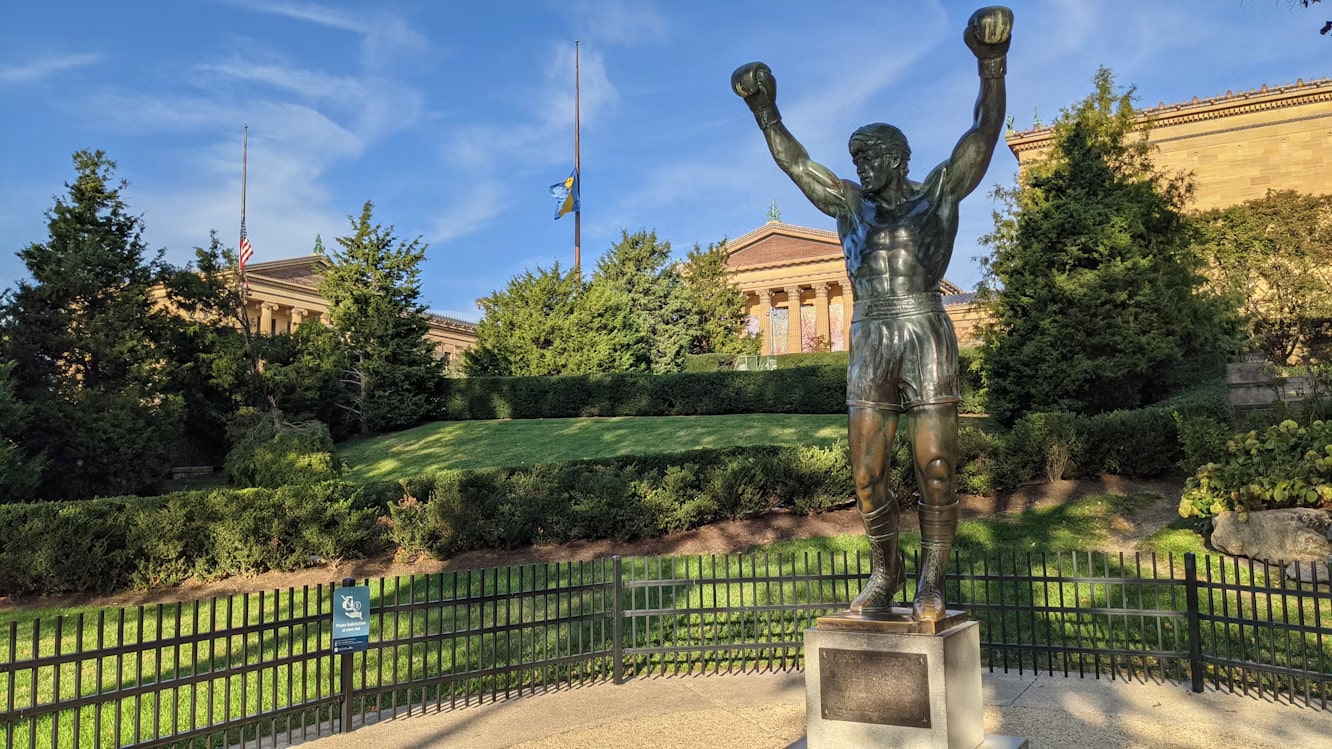 Philadelphia's walkable historic district offers rich American history for weekend discovery
Philadelphia's walkable historic district offers rich American history for weekend discovery
How Do I Plan Budget Weekend Getaways?
Save money on weekend trips by traveling during shoulder seasons (spring/fall, saving 20-40% on peak rates), booking accommodations with kitchens (saving $100+ on restaurant meals), choosing free or low-cost activities (hiking, beaches, historic districts), and targeting lesser-known destinations that deliver similar experiences at lower prices.
Budget constraints shouldn't eliminate weekend getaways—they should make you more creative. Some of my favorite escapes have cost less than staying home for the weekend when done strategically.
Strategic Timing for Cheaper Weekend Trips
Off-peak travel: Travel during shoulder seasons (April-May, September-October outside peak summer; January-March outside winter holidays) and you'll typically find accommodations at substantially lower rates than peak season pricing. That boutique inn that commands premium rates in July may be far more affordable in March, and the destination is equally beautiful.
Mid-week vs weekend pricing: If you can travel Tuesday-Thursday instead of Friday-Sunday, accommodation rates often drop significantly at most destinations. This works particularly well for remote workers or anyone with schedule flexibility.
Last-minute deals: Hotels often discount unsold inventory 24-72 hours before arrival. Apps like HotelTonight or checking Booking.com Thursday evening for Friday departures can yield substantial savings. Set up price alerts on Google Travel to track rate drops for your target destinations.
Budget-Friendly Accommodation Strategies
Vacation rentals with kitchens: I've found vacation rentals with kitchens often pay for themselves. Making breakfast ($8 saved per person) and packing lunch ($15 saved per person) means splurging on nice dinners without budget guilt. That's $46 daily savings for two people—enough to cover kitchen-equipped rental premium.
State and national park lodges: National Park Service lodges and state park cabins offer character at reasonable prices. You're paying for location—waking up inside parks without driving from distant hotels.
Smaller towns near popular destinations: Stay in towns surrounding expensive tourist destinations. Properties 15-30 minutes outside Napa, Martha's Vineyard ferry terminals, or ski resort bases often cost substantially less while providing similar access.
What Are Budget-Friendly Activities That Don't Feel Cheap?
The secret to budget weekend getaways isn't deprivation—it's finding experiences that feel luxurious without luxury price tags:
Free natural experiences: Dawn or sunset experiences (hikes, beach walks, scenic overlooks) cost nothing but create unforgettable moments. Cape Cod's beaches at sunrise rival any expensive resort experience.
Picnic culture: Picnics with quality ingredients from local markets feel more special than mediocre restaurant meals while saving money.
Self-guided exploration: Self-guided walking tours of historic districts provide the same information as paid tours. Download free audio tours or print walking maps. Washington DC's National Mall offers world-class museums with free admission—exceptional value compared to private museums.
Strategic timing for restaurants: Happy hour specials (typically 4-6 PM) let you experience nice restaurants at fraction of dinner prices—same kitchen, same quality, substantially lower bills.
State park day passes: State park day passes (typically under $15 per vehicle) provide access to incredible natural spaces, hiking trails, beaches, and picnic areas—entertainment for entire families at minimal cost.
Free cultural experiences: Free museum days, outdoor concerts, farmers markets, and community events. Newport's Cliff Walk provides mansion views without admission fees.
I've found that "splurge and save" works better than cutting everything. Pick one or two expensive experiences that matter (maybe that tasting menu or guided kayak tour) and save aggressively elsewhere (breakfast at accommodation, picnic lunches, free activities, happy hour dinners).
Sample Budget Weekend Getaway Cost Breakdown (2 People)
| Expense Category |
Budget Strategy |
Estimated Cost |
| Accommodation (2 nights) |
Off-season inn with breakfast included |
$240 |
| Meals |
One nice dinner, other meals from groceries/picnics |
$120 |
| Activities |
State park pass, museum donation, coffee shops |
$40 |
| Transportation |
Gas for 200-mile round trip |
$50 |
| Total Weekend Cost |
$450 ($225 per person) |
| Compare to luxury trips ($800+ per person) or ultra-budget camping trips ($150-200 per person) |
Price transparency note: These are realistic 2025 estimates based on mid-range choices and will vary by region and season. Luxury trips can exceed $800+ per person; ultra-budget approaches using camping, home-cooked meals, and exclusively free activities can drop to $150-200 per person.
Discover affordable destinations: Explore budget-friendly options in Portland's food truck scene or Cape Cod's free beaches.
What Makes a Destination Perfect for Road Trippers?
Road trip-worthy destinations offer scenic drives as part of the experience (not just transportation), multiple stop-worthy points every 60-90 minutes, flexible routing options, and enough activities at the destination to justify the drive—typically 3-5 hours maximum for weekend trips.
The best road trip destinations aren't just about the endpoint—the journey delivers its own rewards. I look for routes where the drive itself becomes an attraction: coastal highways with pullouts for ocean views, mountain roads that climb through changing ecosystems, or rural routes dotted with farm stands and small town main streets.
What I've learned matters for road trip weekends: interesting stops every 60-90 minutes (not just gas stations), accommodation options at multiple points along the route in case you want to adjust plans, and enough to see that you're not just driving for the sake of driving.
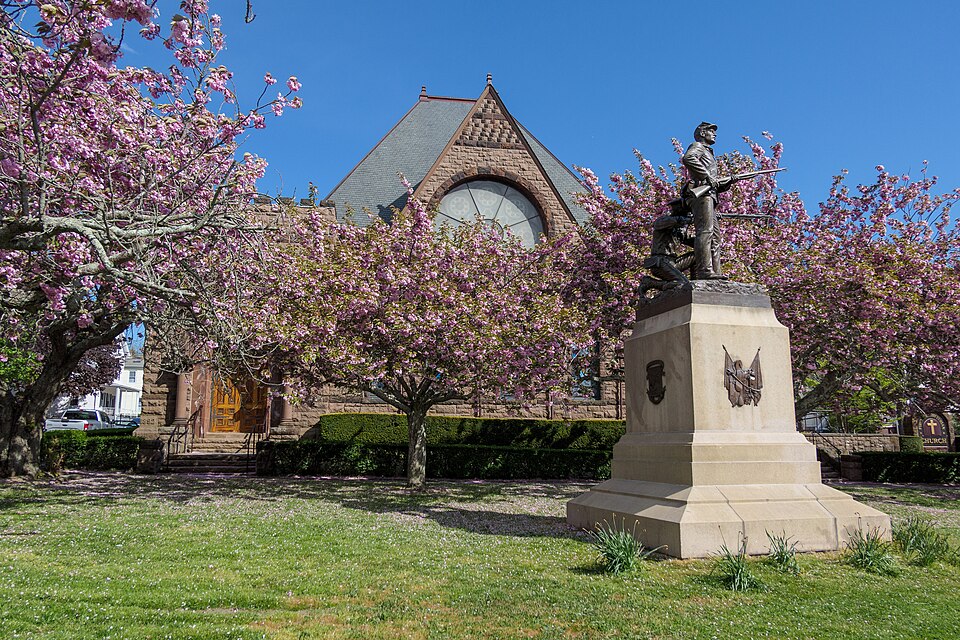 Newport's oceanfront estates and scenic coastal drives create picture-perfect weekends
Newport's oceanfront estates and scenic coastal drives create picture-perfect weekends
The Pacific Coast Highway and Blue Ridge Parkway are famous for good reason—they deliver constantly changing scenery and regular opportunities to pull over, stretch, and discover. But I've had equally great road trip weekends on lesser-known routes, like the scenic coastal drive through Cape Cod with its charming seaside towns and beaches, or the historic route connecting Philadelphia to Washington DC through Revolutionary War sites and countryside.
What Are Essential Road Trip Planning Tips?
Vehicle preparation matters more than you think: Check tire pressure, oil levels, windshield wiper fluid, and ensure you've got an emergency kit before departure. Nothing ruins a weekend faster than preventable car trouble. I keep a permanent road trip kit in my car: first aid supplies, blankets, water, non-perishable snacks, phone chargers (car and portable battery), jumper cables, and basic tools.
Download offline maps: Cell service gets spotty on scenic routes. Download maps for your entire route through Google Maps or other navigation apps before leaving. I also note gas station locations—some beautiful routes have 80-100 mile stretches between fuel stops. Cape Cod's outer reaches and coastal areas can have limited services between towns.
Plan your soundtrack: Hours of driving need good audio. I create specific playlists for each trip—music that matches the landscape somehow enhances everything. Alternatively, download podcast episodes or audiobooks before departure (streaming uses data and drains battery).
Understand lodging flexibility: Are you locked into specific reservations with cancellation penalties, or can you adjust if you want to stop early or push farther? I like booking first and last nights with free cancellation, leaving middle nights flexible when possible for multi-day road trips.
Budget extra time for enjoyment: Road trips always take longer than GPS estimates when you're actually stopping to enjoy things. I add 50% to whatever Google Maps suggests for scenic routes. That supposed "3-hour drive" from Portland to the coast becomes 4.5 hours when you're stopping at viewpoints, quirky roadside attractions, and that farm stand selling fresh berries.
Snack strategy: Pack a cooler with drinks, fruit, sandwiches, and snacks. Highway rest stop food is expensive ($12-15 per person for mediocre meals) and slows you down. A $30 grocery store stop provides snacks for entire weekend while saving 2-3 hours of restaurant stops.
Plan your road trip: Discover scenic routes to Charleston's Lowcountry or Newport's coastal roads.
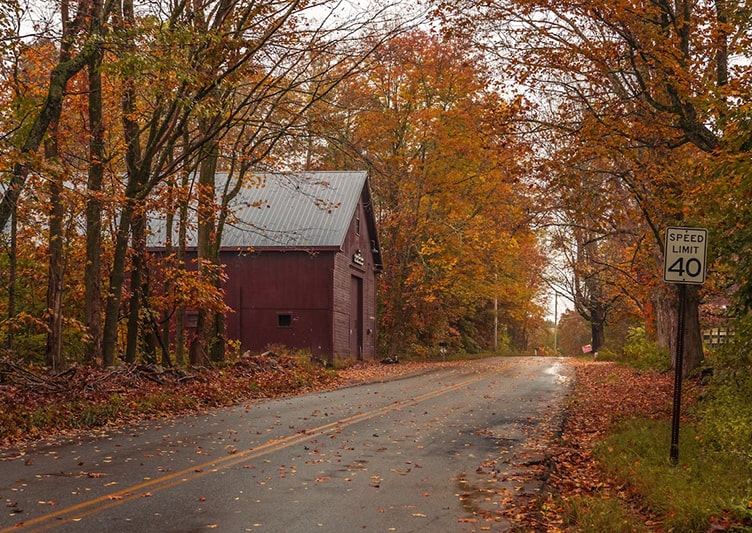 The Berkshires transform into a fall paradise perfect for leaf-peeping road trips
The Berkshires transform into a fall paradise perfect for leaf-peeping road trips
How Can Motorcyclists Plan the Perfect Weekend Ride?
Motorcycle weekend getaways require routes with engaging curves and elevation changes (not straight highways), scenic variety that rewards the riding experience, and rider-friendly amenities including secure parking, gear-accommodating rooms, and breakfast served early enough for dawn departures (6:30-7 AM).
Motorcycle travel adds layers of consideration that car drivers don't face. Weather matters exponentially more—rain that's merely annoying in a car becomes genuinely dangerous on two wheels. Route selection becomes crucial—highway miles feel different at 70mph on two wheels than in a car. Luggage capacity creates natural packing discipline that eliminates overpacking temptations.
I've ridden enough weekend trips to know what separates good from great: twisty roads that reward skilled riding, not just straight highways; elevation changes that create varied landscapes and temperatures within single rides; small towns with local breakfast spots rather than only chain restaurants; and accommodations that understand motorcyclists—secure parking (ideally covered or garages), ground-floor rooms easier with luggage, places to air out gear, and early breakfast for dawn departures.
The best motorcycle weekends combine challenging roads with genuine destinations worth stopping for. Mountain routes naturally deliver both—the Blue Ridge Parkway, Mount Rainier loop roads, or Colorado's mountain passes. But I've found excellent motorcycle weekends on coastal routes like Newport's Ocean Drive, through wine country around Portland, or exploring Charleston's Lowcountry backroads.
What Are Motorcycle-Specific Packing and Planning Tips?
Packing constraints force priorities: Soft luggage expands but has practical limits, hard cases have fixed capacity, and whatever you bring needs to handle weather exposure and vibration. I pack one complete change of clothes plus riding layers, rain gear always (even with sunny forecasts), and tools/first aid. Everything else is luxury I can live without.
Weather strategy becomes critical: Check forecasts but plan for variation beyond predictions. Mountain passes can drop 20-30 degrees in an hour as elevation changes. I always pack heated gear liner even if forecasts look warm—I'd rather carry 2 pounds of gear than need it and not have it at 8,000 feet elevation.
Route planning tools for riders: I use apps like Scenic, Calimoto, or REVER that highlight curvy roads and rider favorites rather than fastest routes. I also join motorcycle groups online—riders enthusiastically share the best routes and warn about road conditions (gravel, construction, poor surfaces) that don't appear on GPS.
Timing considerations for safety: Dawn departures mean cooler temperatures (better for leather gear in summer) and dramatically less traffic on popular roads. I target 7-8 AM starts for weekend rides, which gets you through challenging twisty sections before afternoon heat, tourist traffic, or afternoon thunderstorms in mountain regions.
Accommodation essentials for riders: I specifically look for covered parking or garages (protecting bikes from weather and theft), ground-floor rooms (much easier with motorcycle luggage), and breakfast starting by 6:30-7 AM. Many boutique hotels and B&Bs don't serve breakfast until 8 or 9 AM—too late for proper riding days that maximize cool morning hours.
Gear considerations: Bring tire pressure gauge and portable compressor, basic tool kit, tire repair kit, extra gloves (for passenger or if primary pair gets wet), earplugs (wind noise fatigue is real), and spare key hidden on bike (lockouts happen).
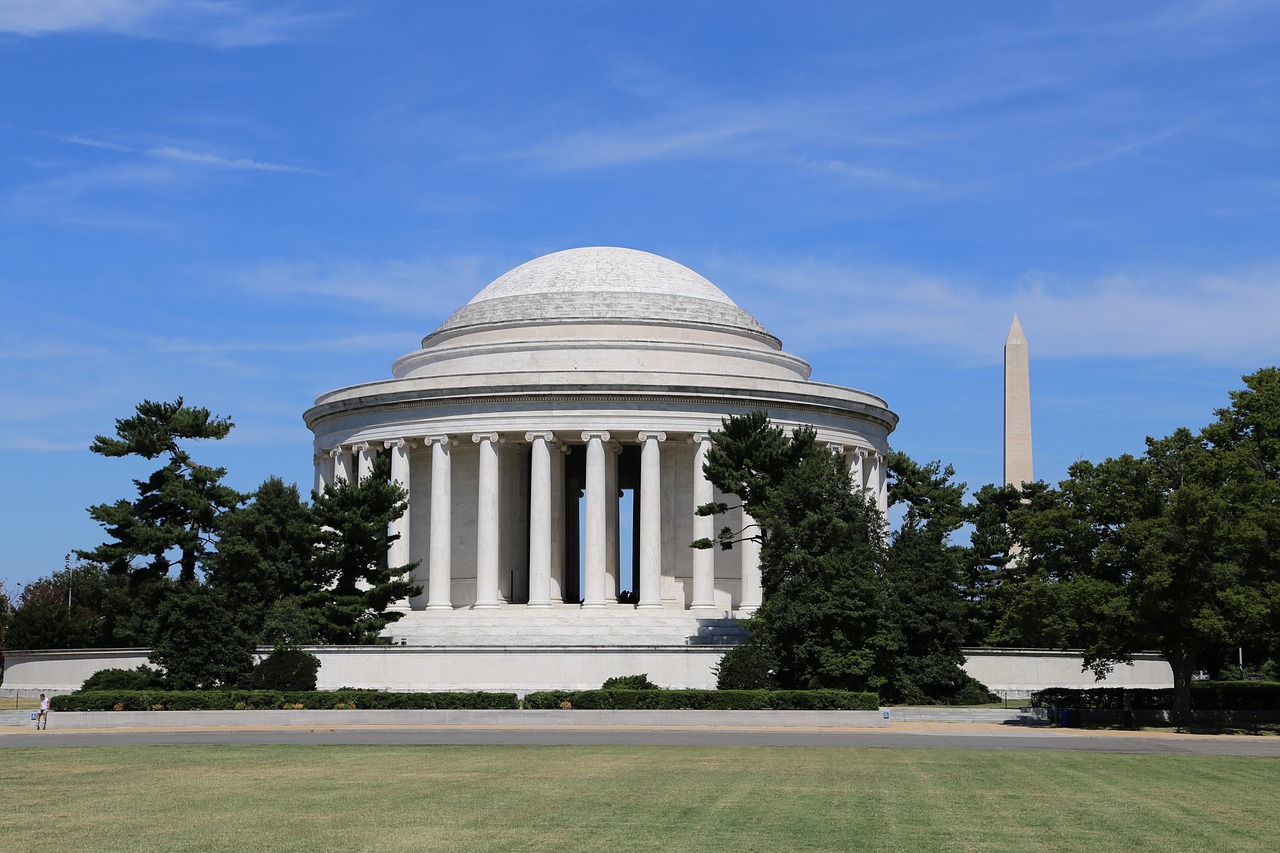 Washington DC's iconic monuments and free attractions create enriching budget-friendly weekends
Washington DC's iconic monuments and free attractions create enriching budget-friendly weekends
What Should RVers Know About Weekend Getaways?
RV weekend trips work best targeting destinations within 200 miles (3-4 hours driving), choosing campgrounds with full hookups for minimal setup/breakdown, and focusing on areas with multiple activities accessible from your site—plus arriving Thursday evening when possible to maximize actual vacation time.
RV travel changes the weekend getaway equation fundamentally. You're slower but self-contained. Distance that works for cars might not work for RVs—highway speeds of 60-65 MPH plus fuel stops mean that "3-hour" car drive becomes 4+ hours in an RV. Setup and breakdown time matters significantly—arriving Friday at 8 PM means you're setting up in the dark with flashlights, then breaking down Sunday afternoon. That's significant chunks of your limited 48-72 hours.
I've found the sweet spot for RV weekends: under 200 miles, arriving with enough daylight to set up properly without stress; campgrounds with full hookups (water, electric, sewer) so you're not dealing with dump stations and water fills on short trips; and destinations where activities are close to your site—hiking trailheads within campground, towns within 10-15 minute drives, or campgrounds on lakes and beaches where you don't need to drive anywhere after arrival.
What Are RV-Specific Weekend Strategies?
Thursday night departures for RVers: Even more valuable for RVers than car travelers. Arrive Thursday evening (leaving work around 3-4 PM), set up properly with daylight and without weekend traffic, cook dinner at your site, wake up Friday truly ready to enjoy the destination with full day ahead. This transforms 48-hour weekends into genuine 72-hour escapes.
Membership campgrounds for frequent travelers: If you weekend frequently in your RV, memberships like Thousand Trails ($600-700 annually), Passport America ($44 annually for 50% off), or Harvest Hosts ($99 annually) deliver significant savings and guaranteed spots. Reserve early—weekend spots at desirable campgrounds fill 4-8 weeks in advance during peak seasons.
Local and state parks over famous destinations: State parks are often overlooked but frequently offer the best weekend RV camping—closer than famous national parks (saving drive time), less crowded (easier reservations), significantly cheaper ($25-45 nightly vs $50-75), and perfectly suited for 2-3 night stays with full hookups and good facilities.
Skip full setup for short trips: For weekend trips, I don't fully deploy every system. Skip the elaborate awning setup, leave non-essential gear packed, use paper plates to avoid dish washing, and simplify everything. Save the full setup for week-long trips. This saves hours of setup/breakdown time.
Weather preparation matters more: RVs handle weather differently than houses. High winds (25+ MPH sustained) make driving sketchy and can damage awnings. Heavy rain reveals leaks you didn't know existed. Temperature extremes (below 20°F or above 95°F) stress heating/cooling systems. Check forecasts carefully and have backup plans or be prepared to adjust.
Campground amenities to prioritize: For weekend trips, prioritize full hookups, WiFi if you need connectivity, clean bathhouses if your RV bathroom is minimal, and proximity to activities. Skip campgrounds requiring long drives to access attractions—that defeats the RV advantage of having accommodation and transportation combined.
Frequently Asked Questions About Weekend Getaways
What makes a great weekend getaway?
A great weekend getaway combines three elements: short travel time (under 3 hours), focused experiences (2-4 key activities rather than exhaustive itineraries), and accommodations that feel special enough to remember. The best mini vacations balance accessibility with genuine separation from daily routine.
How far should you travel for a weekend trip?
Most successful weekend getaways stay within 150-200 miles or roughly 3 hours driving time. This maximizes time at your destination while minimizing travel fatigue. For 2-day trips, staying within 2 hours is ideal; for 3-day weekends, up to 4 hours can work if you leave Thursday evening or Friday morning.
What should I pack for a weekend getaway?
Pack 2-3 complete outfits that layer and mix, comfortable walking shoes, weather-appropriate outerwear, toiletries in travel sizes, all medications, phone charger, and activity-specific gear. Everything should fit in a single carry-on bag or backpack. Follow the "wear one, pack two" rule for bottoms and "wear one, pack three" for tops.
How much should I budget for a weekend trip?
Plan approximately $200-400 per person for a comfortable weekend getaway including accommodations, meals, activities, and transportation. Budget weekend getaways can cost $150-250 per person using strategic timing and accommodation choices, while luxury experiences may exceed $600-800 per person. Costs vary significantly by destination, season, and travel style.
When should I book a weekend getaway?
Book 6-8 weeks ahead for popular destinations during peak seasons (summer beaches, fall foliage, winter ski towns). For less popular destinations or off-season travel, 2-3 weeks ahead often suffices. Last-minute deals are possible 24-72 hours before departure but limit choice significantly.
What are the best seasons for weekend trips?
Each season offers advantages: spring (April-May) provides pleasant weather and smaller crowds; summer (June-August) offers long daylight hours; fall (September-October) delivers ideal temperatures and fall colors; winter (December-February) provides the best deals and unique snowy landscapes. Choose based on your preferred activities and budget.
How do I save money on weekend getaways?
Travel during shoulder seasons for 20-40% savings, book accommodations with kitchens to save on restaurant meals, choose destinations with free activities (hiking, beaches, museums with free admission), stay in smaller towns near expensive destinations, and use camping or state park lodges instead of hotels.
What are common mistakes to avoid on weekend trips?
Avoid overscheduling itineraries, choosing destinations too far away (over 3-4 hours), booking accommodations far from activities, skipping restaurant reservations in popular areas, and forgetting to build in actual relaxation time. The goal is restoration, not exhaustion.
Creating Your Perfect Weekend Getaway
The most important lesson I've learned about weekend getaways: they're not luxury—they're necessity. Regular, intentional breaks from routine don't just make life more pleasant; they make life sustainable. Recent travel industry data shows that 70% of Americans plan to maintain or increase their travel activities in 2025, with the average traveler taking three domestic trips annually—demonstrating that short, frequent getaways have become essential to how we balance work and restoration.
You don't need exotic destinations or expensive resorts. You need separation from daily patterns, experiences that engage different parts of your brain, and spaces that allow you to remember who you are beyond your job title and to-do lists. At Hidden Weekends, we specialize in uncovering these transformative short trips that restore your spirit without breaking the bank.
Start small if you're new to weekend getaways. Pick somewhere two hours away. Book one night. Plan two things. See how it feels. I guarantee you'll return planning your next escape before you've even unpacked.
The weekend getaways that changed my perspective weren't the farthest or fanciest—they were the ones where I felt genuinely present, discovered something unexpected, and returned home with my internal reset button thoroughly pressed.
Your perfect weekend getaway is probably closer than you think, costs less than you'd imagine, and is waiting for you to simply decide to go. Whether you're drawn to Philadelphia's Revolutionary history, Washington DC's monumental grandeur, Charleston's Southern charm, Newport's Gilded Age elegance, Portland's creative energy, or Cape Cod's coastal beauty, the only mistake is not taking any at all.
Explore more weekend getaway destinations and guides for additional inspiration and detailed itineraries.
Ready to Plan Your Next Weekend Escape?
Browse by destination type:
Browse by travel style:
- Road trippers: Discover scenic routes and stop-worthy towns
- Motorcyclists: Find rider-friendly routes and accommodations
- RVers: Locate campgrounds perfect for weekend stays
- Budget travelers: Explore affordable destinations with free activities
- Couples: Plan romantic escapes with intimate settings
Start planning your weekend escape today—because the best time to go is always now.
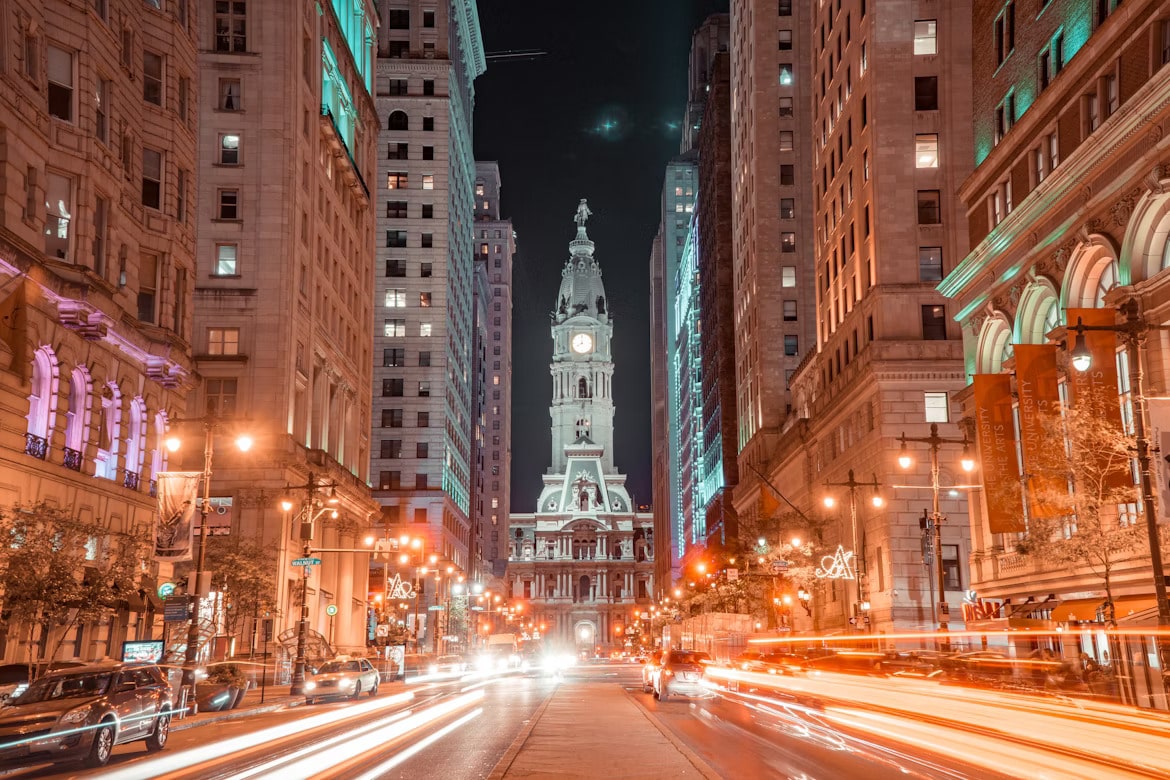
 Charleston's historic district offers walkable weekend adventures with Southern charm
Charleston's historic district offers walkable weekend adventures with Southern charm The Blue Ridge Parkway offers stunning weekend drives with changing elevations and vistas
The Blue Ridge Parkway offers stunning weekend drives with changing elevations and vistas Cape Cod's iconic lighthouses and beaches offer peaceful coastal retreats
Cape Cod's iconic lighthouses and beaches offer peaceful coastal retreats Newport's Gilded Age mansions and coastal walks create romantic weekend escapes
Newport's Gilded Age mansions and coastal walks create romantic weekend escapes The Catskills offer spectacular fall foliage and hiking for autumn weekend escapes
The Catskills offer spectacular fall foliage and hiking for autumn weekend escapes Washington DC's free museums and monuments offer enriching cultural weekend experiences
Washington DC's free museums and monuments offer enriching cultural weekend experiences Portland's food trucks and brewery culture create vibrant urban weekend experiences
Portland's food trucks and brewery culture create vibrant urban weekend experiences The Berkshires provide peaceful mountain retreats with stunning seasonal beauty
The Berkshires provide peaceful mountain retreats with stunning seasonal beauty Charleston's waterfront dining and historic charm create memorable urban weekend escapes
Charleston's waterfront dining and historic charm create memorable urban weekend escapes Philadelphia's walkable historic district offers rich American history for weekend discovery
Philadelphia's walkable historic district offers rich American history for weekend discovery Newport's oceanfront estates and scenic coastal drives create picture-perfect weekends
Newport's oceanfront estates and scenic coastal drives create picture-perfect weekends The Berkshires transform into a fall paradise perfect for leaf-peeping road trips
The Berkshires transform into a fall paradise perfect for leaf-peeping road trips Washington DC's iconic monuments and free attractions create enriching budget-friendly weekends
Washington DC's iconic monuments and free attractions create enriching budget-friendly weekends